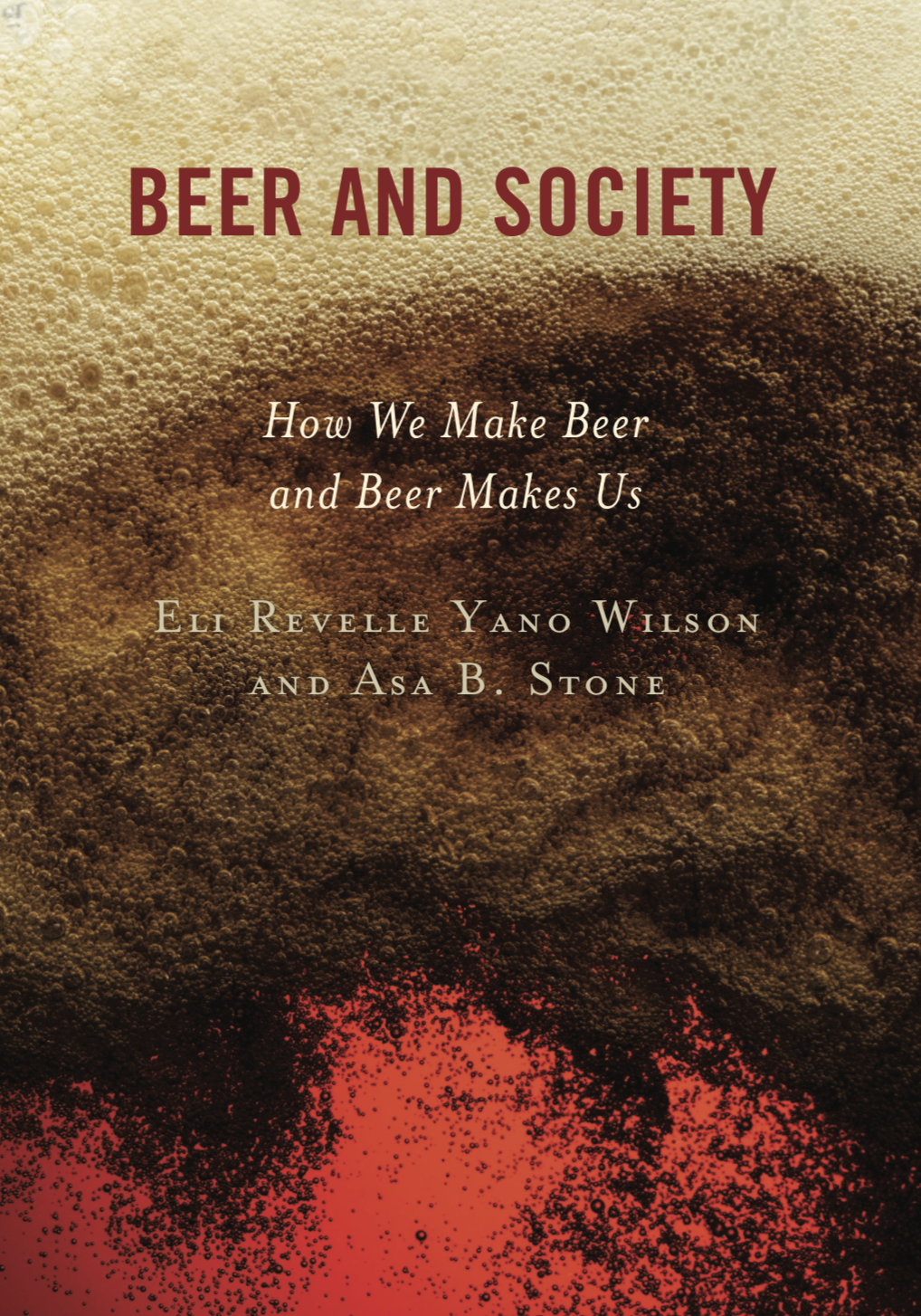RECENT PUBLICATIONS
Unpacks the problems and privileges of pursuing a career of passion by exploring work inside craft breweries.
With Handcrafted Careers, sociologist Eli Revelle Yano Wilson dives headfirst into the everyday lives of workers in the craft beer industry to address key questions facing American workers today: about what makes a good career, who gets to have one, and how careers progress without established models.
Wilson argues that what ends up contributing to divergent career paths in craft beer is a complex interplay of social connections, personal tastes, and cultural ideas, as well as exclusionary industry structures. The culture of work in craft beer is based around “bearded white guy” ideals that are gendered and racialized in ways that limit the advancement of women and people of color. A fresh perspective on niche industries, Handcrafted Careers offers sharp insights into how people navigate worlds of work that promote ideas of authenticity and passion-filled careers even amid instability.
“Handcrafted Careers” article in Social Problems (2024)
How does racial inequality in today's world of work get reproduced at the ground-level through subtle and indirect processes? Why do employment inequities between white workers and workers of color become more pronounced over time? This research tackles these questions by examining the racialized career pathways of workers in the US craft beer industry.
Peer-reviewed articles on passion, identity, and inequality among craft beer workers
“It Could Never Be Just About Beer: Race, Gender, and Marked Professional Identity in the US Craft Beer Industry". Journal of Professions and Organization, 2022.
“Privileging Passion: How the Cultural Logic of Work Perpetuates Social Inequality in the Craft Beer Industry.” Socius, 2022.
Beer and Society: How We Make Beer and Beer Makes Us takes readers on a lively journey through the social, cultural, and economic dimensions of the modern beer world. This book illustrates that beer is far more than a beverage. As a finely-crafted cultural product, beer can be a part of our identity, a source of pleasure and camaraderie, an object of connoisseurship, and a livelihood for those who are behind the beer itself. Drawing on leading sociological and psychological perspectives, the authors argue that our enduring relationship with beer reflects the very roots of our society, including its collective values and norms, power structures, and persistent inequities based on race, gender, sexuality, and social class. Beer and Society explores beer as an embodiment of who we are and a force to energize social change.
**For a 30% discount, click HERE and enter LXFANDF30 when purchasing.
“Sticking to It or Opting for Alternatives?” Qualitative Sociology 2022.
In an era of nonstandard work—where more Americans engage with multiple jobs across fluid employment contexts—how do people manage key aspects of their work lives, such as their occupational identity and schedules?
Dr. Wilson, together with his co-author Dr. David Schieber, examines two cases of nonstandard workers facing differing degrees of contested work identity—frontline restaurant workers and sex workers. The authors find that while these workers use similar strategies to manage their employment that involve identity work and job searching, their decision to stick to their line of work or opt for alternatives stems in part from the symbolic characteristics of their respective jobs.
White-Collar Locals in Hawai‘i
In this study Dr. Wilson examines how workers, particularly Japanese and Chinese Americans, enact "Local" identity in a white-collar workplace in Honolulu, Hawai‘i. Based on in-depth interviews as well as ethnographic research, he finds that the process of group boundary-making fosters a sense of solidarity and shared cultural connection among some workers while being exclusionary towards others. White-collar Local identity serves as a distinct panethnic, place-based identity vis-a-vis Haole (white), but it also reinforces existing hierarchies of race and class in the islands.
Public Essays on Restaurant Work/Workers
“Can Restaurants Become Drivers of Opportunity—Not Inequality?” March 8, 2021. Zocalo Public Square.
RECOMMENDED RESOURCES TO HELP RESTAURANT WORKERS AND INDEPENDENT RESTAURANTS:
*Restaurant Opportunities Center (ROC) Pandemic Response Fund for Restaurant Workers
Recent Peer-Reviewed Articles and Book Chapters
“White-Collar Local: Examining Group Boundary Making and Social Hierarchies in a Honolulu Government Workplace”
Social Process in Hawai’i, 2021
“Managing Portfolio Lives: Flexibility and Privilege Amongst Upscale Restaurant Workers in Los Angeles”
The unstable, even precarious labor conditions of many frontline service jobs in the United States should render them undesirable to upwardly mobile young workers. Yet how might these types of jobs complement, rather than infringe upon, the broader lifestyles of those hired to do them? Dr. Wilson answers this question by introducing the concept of “portfolio lives”: shifting and often unstable assemblages of work and non-work activities that many front-of-house workers negotiate.
Qualitative Sociology, 2019.
“Tip Work: Examining the Relational Dynamics of Tipping Beyond the Service Counter.”
How might the implications of working for tips go beyond the service counter? Dr. Wilson argues that tipping strains relations between subgroups of workers who, despite collectively producing service in the same establishment, are subject to unequal access to tip earnings. By exploring the broader scope of “tip work,” Dr. Wilson shows that the way tips are received and distributed in the workplace shapes relations among workers in ways that can exacerbate existing organizational and social hierarchies.
Symbolic Interaction, 2019.
“Stuck Behind Kitchen Doors? Assessing the Work Prospects of Second-Generation Latino Workers in a Los Angeles Restaurant.”
As the children of Latinx immigrants enter “bad” service and retail jobs alongside the first generation, how might they be faring differently? Dr. Wilson shows that while structural disadvantages initially funnel these workers into bottom-rung restaurant jobs, many are able to leverage their in-betweenness on a shopfloor divided into immigrant Latino and privileged white employee cohorts. Doing so has allowed some latter-generation workers access to new occupational mobility pathways virtually closed to the first generation.
Ethnic and Racial Studies, 2017
“Matching Up: Producing Proximal Service in a Los Angeles Restaurant.”
Usually, service workers must carefully control their emotional and aesthetic displays towards customers who, in turn, need not reciprocate such acts. By contrast, Dr. Wilson introduces the concept of proximal service — performed relationships in which server and served engage in peer-like interactions in a commercial setting. Dr. Wilson shows how management structures this drama through hiring, training, and shopfloor policies, all of which encourage select workers to approach customers using informal, flexible, and peer-like performances. He predicts this branded experience of “service amongst equals” is on the rise in settings that aim to offer an “authentic” consumer experience.
Research in the Sociology of Work, 2016
“Bridging the Service Divide: Dual Labor Niches and Embedded Opportunities in Restaurant Work.”
Restaurants and other interactive service workplaces in the United States serve as labor “niches” for two very different kinds of workers doing different tasks in the same setting. But what keeps these workers apart—and unequal? And how might the presence of dual labor niches in the workplace be a source of unexpected advantage for some workers?
RSF: Russell Sage Foundation Journal of the Social Sciences, 2017








